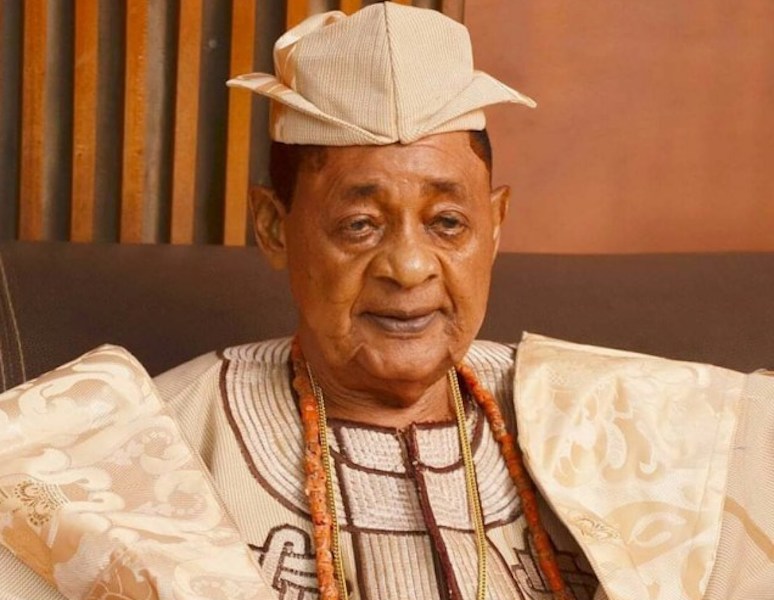With the death of the Alaafin of Oyo, Oba Lamidi Adeyemi III, in the early hours of Friday, April 22, 2022, at the age of 83, at the Afe Babalola University Teaching Hospital in Ado-Ekiti, Nigeria lost one of its most iconic traditional rulers, whose 52-year reign on the ancient throne of Oyo was marked by achievements and sterling contributions to national development.
Born on October 15, 1938, into the Alowolodu ruling house of Oyo, Oba Adeyemi’s father was Prince Raji Adeniran Adeyemi II who became Alaafin in 1945 and was dethroned and exiled in 1955.
The late Alaafin, in his lifetime, impacted positively in the lives of not just his immediate subjects in Oyo town where he held his royal court, but in Yoruba land and Nigeria as a whole.
At his coronation on November 18, 1970, at the age of 32 in succession to Oba Gbadegesin Ladigbolu I, Oba Adeyemi became the 45th Alaafin in the history of the ancient Oyo Empire, which at its zenith stretched into present day Benin Republic.
The late Oba Adeyemi was an all-rounder; he was versed in Islamic knowledge as a practicing Muslim, as well as in the ways and practices of Yoruba tradition, of which as one of its prominent monarchs he was a very important symbol and custodian of. He was also a sportsman and was well known for his love for boxing.
Oba Adeyemi was also one of the most colourful and recognised traditional rulers in the country. Always bedecked in his trademark Yoruba aso-oke with matching embroidery and beads, was a statement in royal splendour, culture and fashion.
His contributions to national development were equally outstanding. This was shaped by his personal experience in his formative years and in the events he witnessed. He lived with his father in exile after being dethroned and banished to Lagos in 1955. As a lad growing under such circumstances, he witnessed first-hand what it was to suddenly fall from the grace and privileges of royalty to the nonentity and anonymity of life in exile with his father. In a way this tampered with his understanding of the vicissitudes of life and prepared him for the nuanced role he was to play as the Alaafin of Oyo.
When he ascended the throne shortly after the civil war in Nigeria, Oba Adeyemi brought to bear on his rule the ethos of tolerance, openness and accessibility to all, and above all, a willingness to contribute constructively to the efforts at national reconciliation in the aftermath of the civil war. He was known to personally lead efforts at rehabilitating returnee Igbo and their property to their abodes.
Although Oba Adeyemi was ruler of an area in the country, his openness and commitment to contribute to national causes endeared him to Nigerians of all walks of life. As Chairman of the Oyo State Council of Traditional Rulers, his role and activities were impactful not just in Oyo State, but beyond. A case in point was when communal clashes occurred between other Nigerians and their hosts in any part of Yorubaland, the late Alaafin was always on hand to sue for peace and join other personalities to calm frayed nerves and seek rehabilitation of affected persons. Indeed, Oba Adeyemi was so well regarded that successive military and civilian rulers who governed the then Western Region, Oyo State and indeed Nigeria, routinely sought his counsel on issues of national import. In this regard, he always included in numerous constructive peace building efforts in the country to lend his considerable wisdom and influence to the resolution of contentious national issues.
In recognition of his sterling contributions to national unity, Oba Adeyemi was appointed Chancellor of the Usmanu Dan Fodio University in Sokoto, a role he performed with distinction from 1980 to 1992. During his tenure, the university witnessed tremendous growth and became one of the best institutions of learning in the country. He also helped build bridges of unity between the former two pre-colonial entities and peoples of Oyo Empire, which he represented, and the Sokoto Caliphate, of which Sokoto was the capital. It was largely to his credit that his tenure as chancellor witnessed increased positive contact and relations between many South Westerners and peoples of the old Sokoto Province comprising the present day Sokoto, Zamfara, Kebbi and Niger states.
While joining Nigerians in mourning the loss of Oba Lamidi Adeyemi, we offer our condolences to his immediate family, the people of Oyo town and Oyo State and pray to Allah (SWT) to grant him peaceful repose in Aljanna Firdaus.

 Join Daily Trust WhatsApp Community For Quick Access To News and Happenings Around You.
Join Daily Trust WhatsApp Community For Quick Access To News and Happenings Around You.


